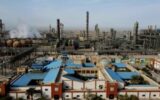
Amirkabir Petrochemical Complex, one of Iran’s industrial companies in the Bandar-e-Imam Petrochemical Special Economic Zone, plays a key role in supplying raw materials to domestic industries and exports with an annual production of more than 1.5 million tons of petrochemical products. Established in 1998, the complex is today known as one of the most diverse polyethylene producers in the country.

While value chain development has become a common buzzword in Iranian petrochemical industry literature, many projects, including MTO and MTP, are still stalled at the raw material sales stage. Petrochemical expert Mohsen Ansari considers “the need for large investments” and “feed instability” to be the most important reasons for the failure of these projects. According to him, in the current situation, the “ethylene” and “propylene” chains have the greatest potential for real completion in Iran and more focus needs to be placed on their development.

Maroon Petrochemical Company is one of the largest petrochemical production complexes in Iran, which was established on February 1, 1998, with the aim of implementing the Seventh Olefin Project.
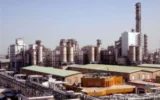
While Bu Ali Sina Petrochemical Company managed to produce beyond its nominal capacity in 1403, Mohammad Ahmadzadeh, the company's CEO, announced the company's plans to surpass this record, increase the share of foreign exchange sales, and focus on producing high value-added products. Bu Ali's strategy is a combination of infrastructure development, export portfolio diversification, and agility in feedstock supply.
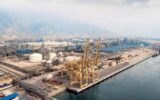
With the aim of improving the composition of its investment portfolio, Petrofarhang Company has issued a call to identify applicants for the purchase of shares of Kian Petrochemical and invited investors to express their readiness to participate in the auction.
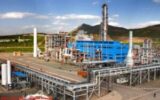
Kermanshah Petrochemical Complex, one of the key centers for chemical fertilizer production in western Iran, plays a prominent role in the province's industrial and economic development with the aim of meeting the region's agricultural needs and reducing dependence on urea imports. The complex, benefiting from its rich natural gas resources and specialized human resources, has become one of the pillars of Iran's petrochemical industry.
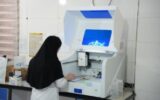
In line with its social responsibility, Gachsaran Polymer Industries Company, in coordination with the Ministry of Health, Treatment and Medical Education, as well as the Gachsaran County Health and Treatment Network, participated in the purchase of necessary equipment for hormonal and blood tests at the Gachsaran State Laboratory.
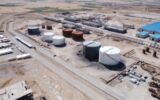
The CEO of Dehdasht Petrochemical Industries Company announced about 45 percent physical progress in the company's heavy polyethylene project.

The Deputy Minister of Oil and CEO of the National Petrochemical Company said: "The instructions for continuing petrochemical industry production in crisis and emergency situations were communicated to regions, holding companies, and petrochemical companies with the aim of sustainable production and meeting the needs of complementary industries."
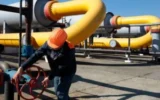
Sabalan Petrochemical was established in 2010 in the strategic region of Assaluyeh with the aim of producing AA grade methanol. With an annual production capacity of 1.65 million tons of methanol, this complex is a key player in Iran's petrochemical industry and is on its way to becoming one of the largest methanol producers in the world.










